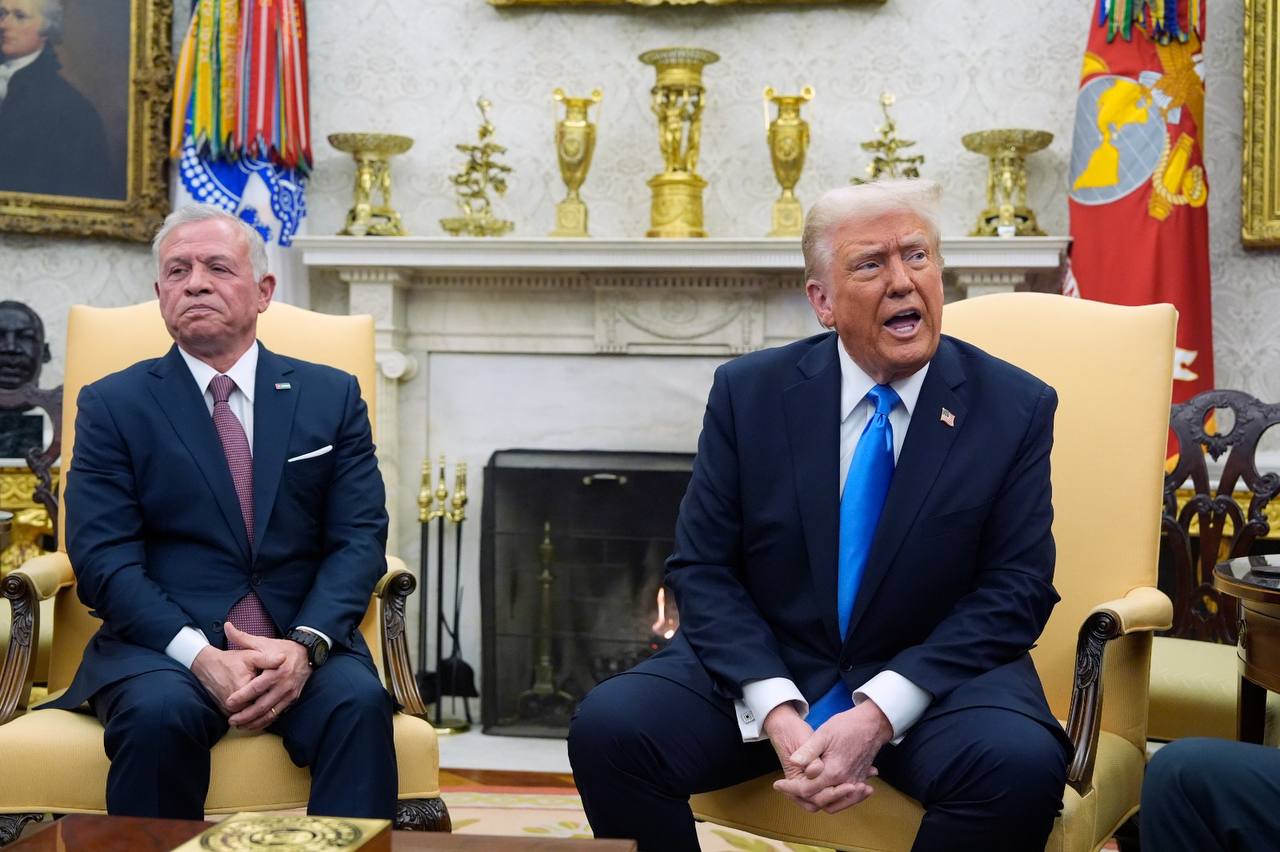By Alexandra Appelberg, editor of the Israeli website 'Detalі'
At a meeting with Donald Trump, King Abdullah II of Jordan praised the US president, saying, "I see a man who can finally bring stability, peace, and prosperity to all of us in the region," but refused to accept refugees from Gaza—at least for now ("Let's wait and not jump ahead. I must think about the interests of my country").
This is not surprising. Even if we set aside the obvious economic and social difficulties of hosting around 1.8 million people, no Arab country would participate in Trump's plan, thus contributing to the forced displacement of Palestinians from their land (and helping fulfill the cherished dreams of Israeli ultranationalists).
For Jordan, this threat is more acute than for others. Amman has already accepted two waves of Palestinian refugees in 1948 and 1967, with Palestinians now comprising more than 50% of the kingdom's population.
They remember "Black September" in 1970, when Palestinian militants took control of parts of the kingdom. Thousands were killed in battles with Jordanian forces before the Palestine Liberation Organization fled to Lebanon. Authorities fear that an influx of Palestinians, including potential Hamas militants, could again provoke instability.
However, the situation in Jordan is already complicated. Since the outbreak of the Gaza war in 2023, Jordanians have regularly taken to the streets to protest cooperation with the US and Israel. While protests calmed after the ceasefire between Israel and Hamas, on Friday, Jordanians returned to the streets to express their opposition to Trump's plan.
Any acceptance of Trump's ideas, which some compare to the Nakba, would be a recipe for domestic unrest and would undermine the legitimacy of the monarchy, as popular discontent could quickly escalate into violence.
Authorities also fear that their country could become an "alternative homeland" for Palestinians, a narrative that has long been used by Israeli right-wingers, who claim that the Palestinian state already exists—and that state is Jordan.
In short, accepting Palestinian refugees would likely mark the end of the Hashemite Kingdom.
But refusing Trump is not so simple. Jordan depends on American aid, including in the security sector, and is therefore vulnerable to coercion.
Donald Trump did not hesitate to press this sore point when, a day before meeting King Abdullah, he stated, "If they don’t agree, I’ll probably cut off aid."
In fact, this preview already occurred when, last month, the Trump administration suspended foreign aid worldwide for 90 days. Interestingly, while Egypt and Israel were given exceptions, Jordan's position as a loyal regional US ally did not protect it.
So, it's a no-win situation: agreeing to Trump's plan is impossible, but rejecting your "sponsor," who believes sovereignty can be bought for dollars, is equally impossible. One can only hope the plan "dies" on its own.
I believe other US allies should learn from this lamentable situation: don't put all your eggs in one basket and, if possible, avoid dependence on the US or any other single power. By the way, the countries of the Persian Gulf got this lesson a little earlier (Saudi Arabia's cold normalization with Iran, contracts with China, etc.). For others, it will be harder.






















